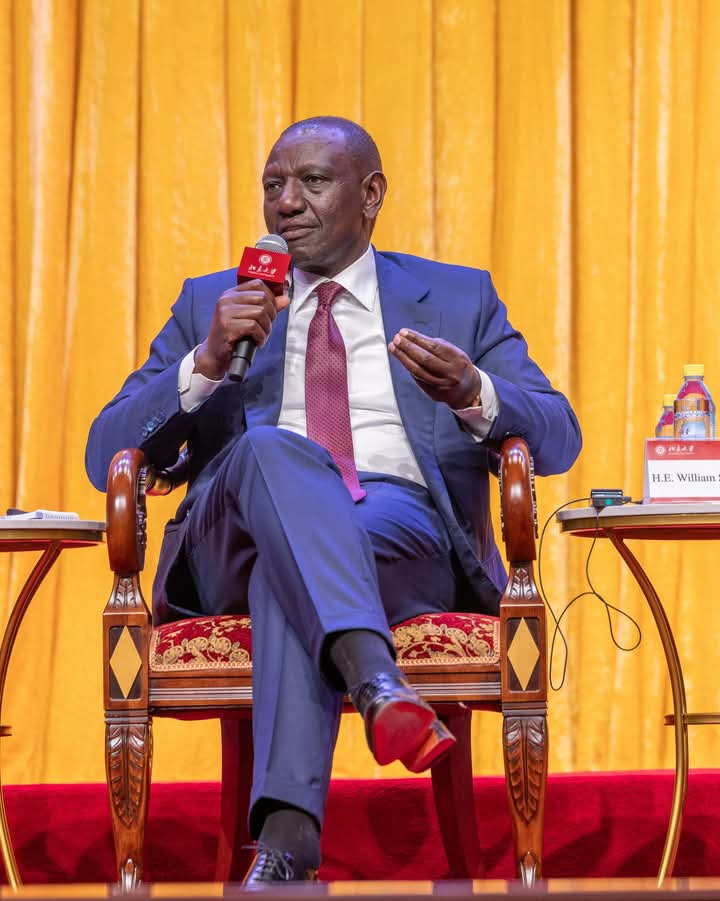
 President William Ruto when he gave a lecture at Peking University in China on April 23, 2025/PCS
President William Ruto when he gave a lecture at Peking University in China on April 23, 2025/PCSPresident William Ruto on Wednesday amplified calls for urgent reforms to the United Nations Security Council (UNSC).
While delivering a public lecture at Peking University in Beijing, Ruto criticised the current structure dominated by five permanent members as outdated and unrepresentative of the modern world’s diversity.
This, as he warned, that the Council’s legitimacy is eroding due to "double standards" among its members.
“The Security Council, once a beacon for peace and diplomacy, now has one permanent member invading one country, while another member takes sides in conflict,” he said.
Ruto argued that the Security Council’s framework, a relic of the post-World War II order, no longer aligns with today’s multipolar reality.
He singled out the veto power wielded by permanent members as particularly anachronistic, as he accused some of hypocrisy by adopting resolutions promoting peace while simultaneously engaging in or fueling conflicts.
According to Ruto, there is a need for "equal regional representation" by expanding both permanent and non-permanent seats, prioritising historically marginalised regions like Africa and Latin America.
"Peace and security cannot be monopolised by a few nations. Decision-making must reflect global participation," he asserted.
While Ruto’s stance has garnered support from developing nations, significant hurdles remain.
Permanent members like the US, Russia, and China remain divided over reform specifics.
China, for example, supports greater representation for the Global South but opposes diluting existing permanent members’ privileges.
The US favours modest expansion of non-permanent seats while protecting its veto power.
Ruto’s proposal may dominate discussions around the UN’s 80th anniversary in 2025.
Analysts suggest African nations could rally behind concrete demands, such as securing at least two permanent seats for the continent.
Ruto, who is on a four-day state visit to the country, will today (Thursday) be hosted by his counterpart, President Xi Jinping, today (Thursday).
A state banquet will also be held.
The two will hold bilateral talks to advance shared priorities in economic transformation, sustainable development, and global cooperation.

![[PHOTOS] Ruto takes the mic in Beijing, calls for global shake-up](/_next/image?url=https%3A%2F%2Fcdn.radioafrica.digital%2Fimage%2F2025%2F04%2Fe00c4e4e-8454-4b96-b6cc-51c38bd520ee.jpeg&w=3840&q=100)






